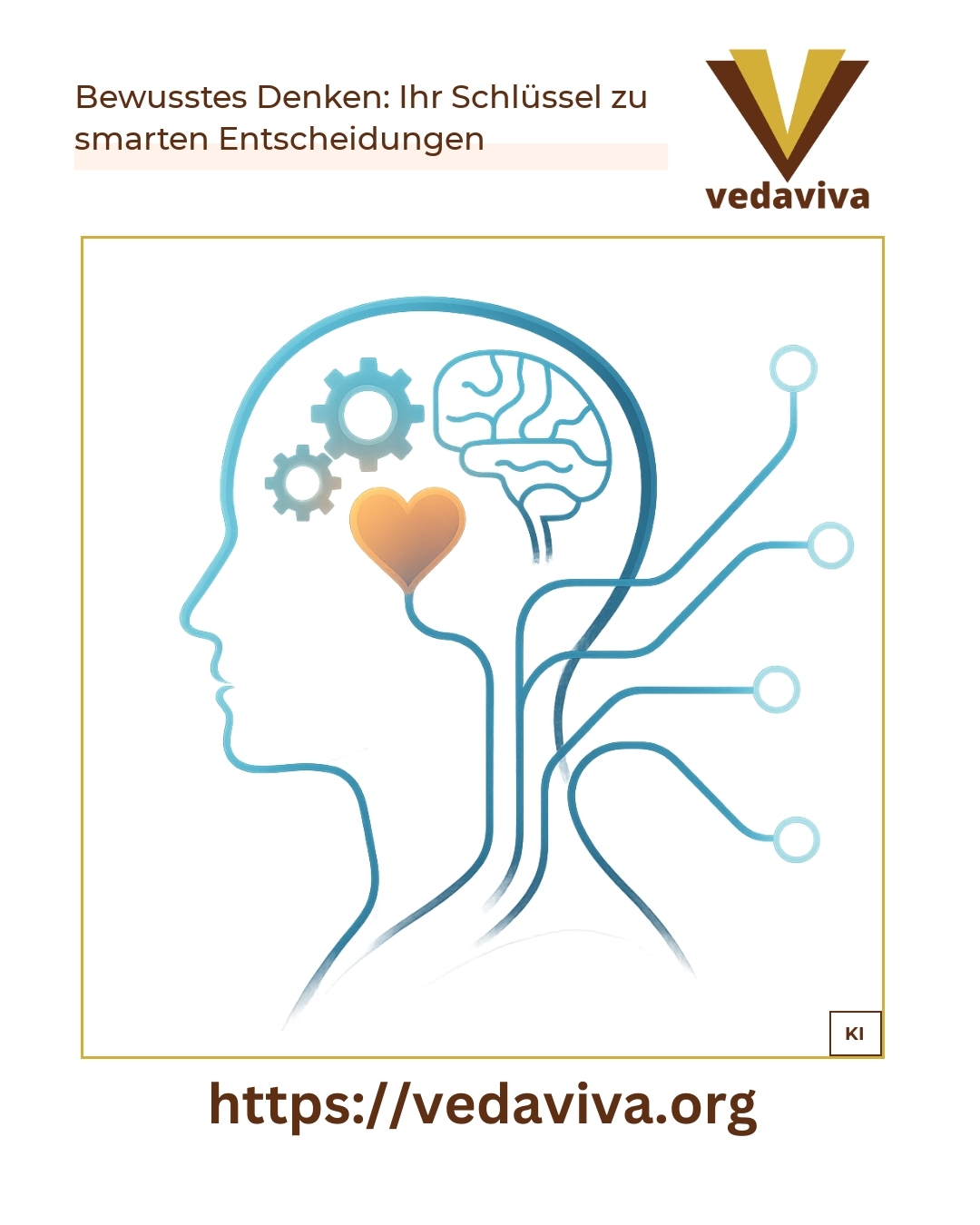Conscious thinking as the foundation for smart decisions
Conscious thinking in everyday life lays the foundation for smart and well-considered decisions. Conscious thinking means controlling the mind in a targeted way instead of remaining in automatic patterns. In today's complex world, this is how we create space for clear perspectives and well-considered actions. It is an active process in which we mindfully perceive and reflect on our thoughts, feelings and circumstances.
Many people are familiar with situations in which decisions have to be made under pressure. This is precisely when conscious attention shows its strength. Those who allow themselves a conscious breathing space gain new perspectives instead of reacting impulsively. For example, in a critical meeting, a manager can not only recognise different opinions through conscious listening, but also better understand and integrate the hidden needs of the team.
Conscious self-observation also plays an important role. By using feelings as information, it is possible to categorise emotional reactions and take them into account when thinking. This prevents impulsive fears or stress from getting out of hand. For example, an entrepreneurial task can be assessed in such a way that both short-term earnings and long-term resource utilisation can be realistically weighed up.
Conscious thinking strengthens problem-solving skills
Conscious thinking is particularly valuable in complex situations. It allows you to focus on different aspects of a problem and consciously set priorities. It is worthwhile structuring your thinking using tried and tested methods. This can be done, for example, by consciously defining goals, collecting information and creatively developing alternatives. In this way, you can maintain an overview against the background of various influencing factors and avoid hasty reactions.
BEST PRACTICE at ABC (name changed due to NDA contract) In a project with tight deadlines, the team deliberately used structured workshops to channel initial emotions and then develop focused solutions to problems. The result was realistic planning that alleviated time pressure and at the same time encouraged creativity. The conscious mindset was valued as a driver for greater clarity and practicality.
This conscious approach also helps to combine "thinking from the gut" and rational analysis in a meaningful way. While the conscious mind works systematically, unconscious thinking can intuitively grasp complex relationships. Conscious thinking therefore does not mean overloading the head, but consciously listening - also to inner impulses.
Everyday integration and practical examples of conscious thinking
Conscious thinking can be integrated into everyday life with simple means. Practical exercises such as pausing to breathe before making decisions, consciously observing your own feelings and creating space for reflective thought are already effective. This results in greater self-control and better handling of stressful situations.
BEST PRACTICE at company XYZ (name changed due to NDA contract) Regular short breaks were introduced here before important meetings began. The employees reported that they were more focussed and relaxed when making decisions as a result. The quality of the discussions also improved thanks to more attentive listening and more targeted questions.
Conscious thinking also proves its worth in counselling. Clients are supported in visualising inner attitudes and trying out alternative ways of thinking. This reflective approach helps them to gain inner clarity and utilise their scope for action more consciously.
BEST PRACTICE in coaching (name changed due to NDA contract) A manager was looking for support because she was often quick to make impulsive decisions. During coaching, she learnt to recognise moments of stress at an early stage and to consciously pause for reflection. This enabled her to make decisions with greater composure and foresight, which benefited the entire team.
These examples show: Conscious thinking is not an abstract theory, but a key practical skill. It helps to improve the quality of decisions, to manage one's own actions sensibly and thus often also to improve cooperation.
My analysis
Conscious thinking is an effective mindset for improving one's own decision-making processes. It combines systematic attention, emotional perception and practical reflection. It therefore helps you to act more intelligently and calmly in complex and challenging situations. Those who think consciously are better able to set priorities, assess risks and find creative solutions. Becoming aware of your own thought patterns opens up a space for new possibilities for action, which is a valuable resource in a fast-moving and often stressful world.
Further links from the text above:
[1] Positive thinking and its effects on well-being
[2] Conscious decision-making - mindfulness as your key
[4] Conscious and unconscious thinking of experts and novices
[5] Decision-making made easy: 30+ methods for clarity!
Legal notice: Coaching does not replace therapy. It serves personal development. I do not diagnose or promise a cure. My offer is for personal development and is not a substitute for medical, psychotherapeutic or curative treatment. Please consult a medically qualified specialist if you have any health complaints. The experiences described here are based on individual feedback from my clients. They are not a guarantee of success and do not replace medical or therapeutic counselling. For more information and if you have any questions, please contact Contact us on the topic or read further blog posts on the Topic here.













